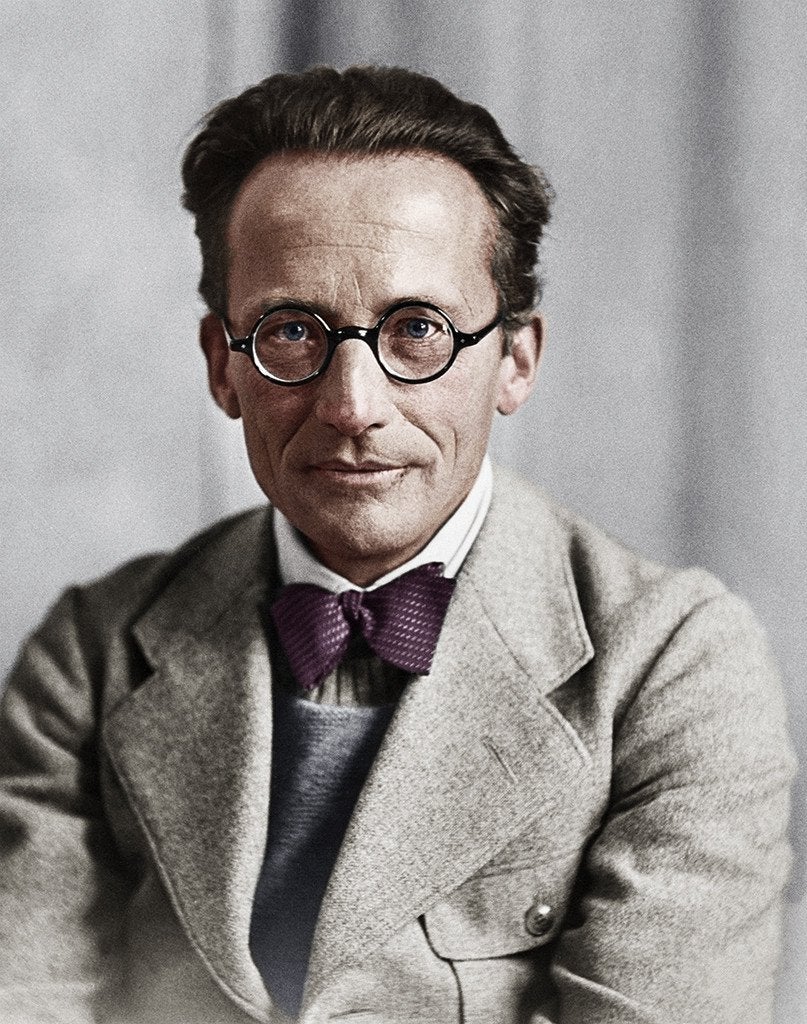In the cosmic odyssey of scientific exploration, few minds shine as brightly as that of Erwin Schrödinger, a luminary whose contributions to quantum mechanics and biology continue to inspire awe and wonder in the hearts of scientists and thinkers alike. Born on August 12, 1887, in Vienna, Austria, Schrödinger’s journey through the realms of knowledge was marked by brilliance, curiosity, and a relentless quest for truth.
From his earliest years, Schrödinger exhibited an insatiable curiosity for the mysteries of the universe. His academic pursuits led him to the University of Vienna, where he studied under renowned physicists such as Friedrich Hasenöhrl and Wilhelm Wien, laying the groundwork for a career that would forever alter the course of scientific inquiry.
Schrödinger’s ascent to scientific eminence was propelled by a series of groundbreaking discoveries that revolutionized our understanding of the atomic realm. Among his most notable contributions was the development of wave mechanics, a revolutionary framework that provided a more intuitive understanding of quantum phenomena. Unlike Werner Heisenberg’s matrix formulation, Schrödinger’s wave mechanics allowed for a visual depiction of the behavior of subatomic particles, paving the way for a deeper comprehension of the quantum world.
In addition to his seminal work in quantum mechanics, Schrödinger made significant contributions to the field of biology. His 1944 book, “What is Life?”, sparked a revolution in the biological sciences by proposing that the gene could be understood as an aperiodic crystal – a concept that laid the groundwork for the field of molecular biology. This groundbreaking work inspired a new generation of scientists, including Francis Crick, James Watson, and Maurice Wilkins, who went on to unravel the structure of DNA and revolutionize our understanding of genetics.
Despite his towering intellect and profound contributions to science, Schrödinger was not immune to controversy. His famous thought experiment, Schrödinger’s cat, challenged the prevailing interpretation of quantum mechanics and sparked fierce debates among physicists and philosophers alike. Yet, it is precisely this willingness to question and challenge established dogma that underscores Schrödinger’s importance as a scientific visionary.
Beyond his scientific achievements, Schrödinger’s legacy endures as a testament to the power of human intellect and curiosity. His unwavering commitment to the pursuit of truth and his ability to bridge the gap between disparate fields of inquiry serve as a beacon of inspiration for future generations of scientists and thinkers.
As we reflect upon the enduring legacy of Erwin Schrödinger, let us remember not only the brilliance of his mind but also the depth of his humanity—a reminder that true greatness lies not only in the pursuit of knowledge, but also in the quest to understand the mysteries of existence and the wonders of the cosmos.
